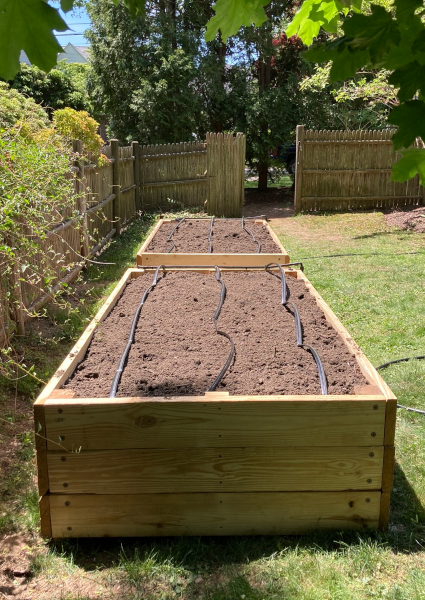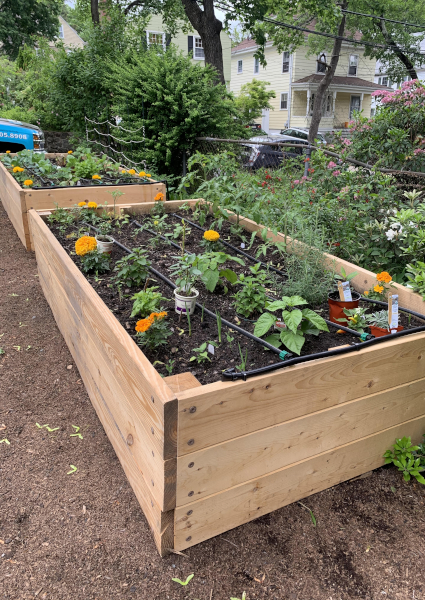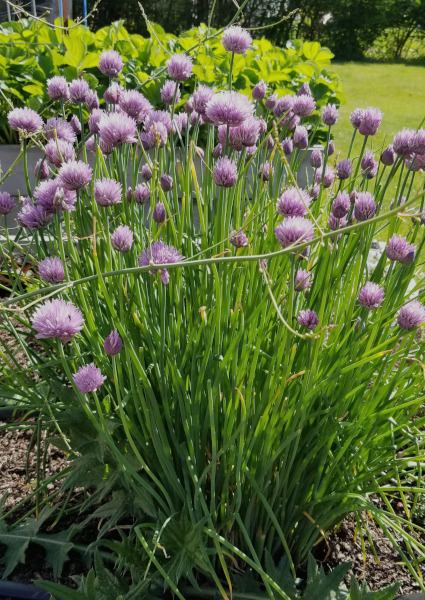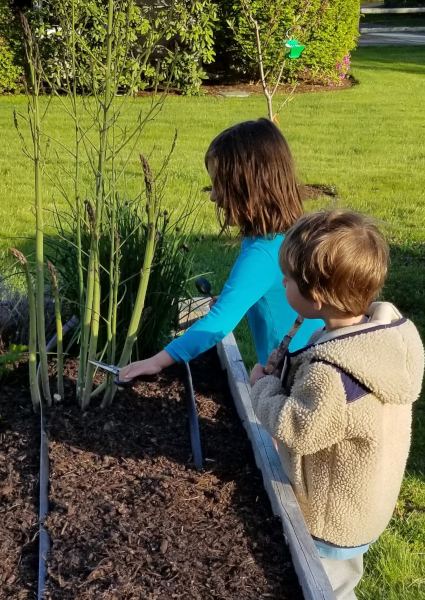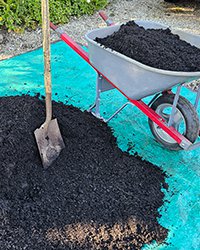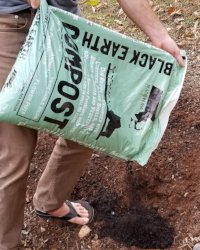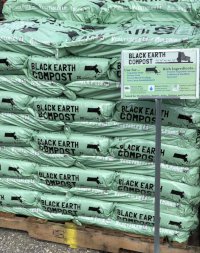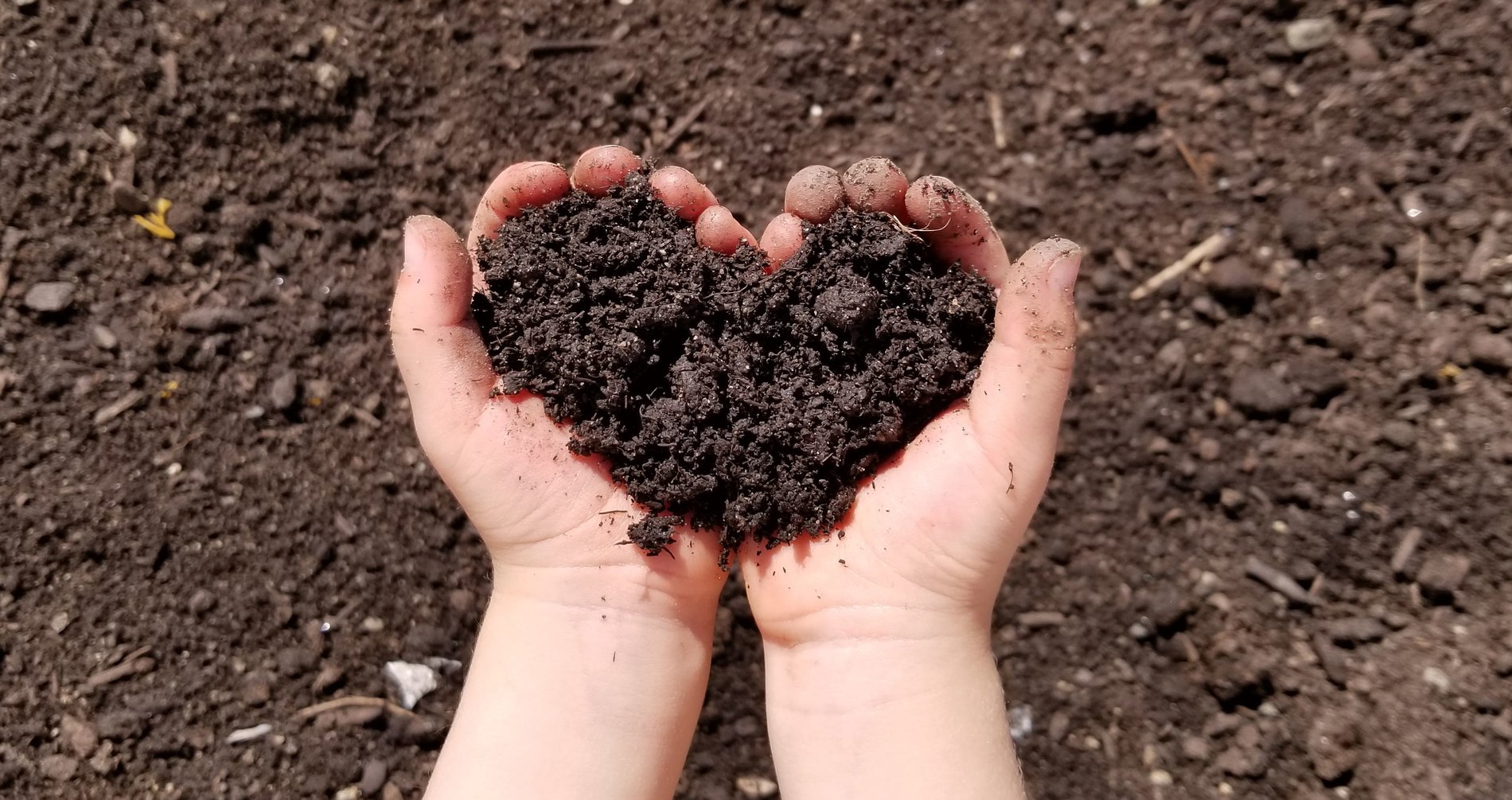
About Black Earth Compost
Our mission is to nourish the soil to grow healthy plants in Massachusetts, with an emphasis on food production by any and all! Made in small batches, our compost is without grass clippings but instead utilizes the riches of a bounty of food scraps.
Compost is an excellent soil amendment to add to your yard for soil and plant health. Use it as a mulch for moisture retention, mix it into the soil before you plant, or topdress your lawn, trees and shrubs to provide added nutrients and organic matter.
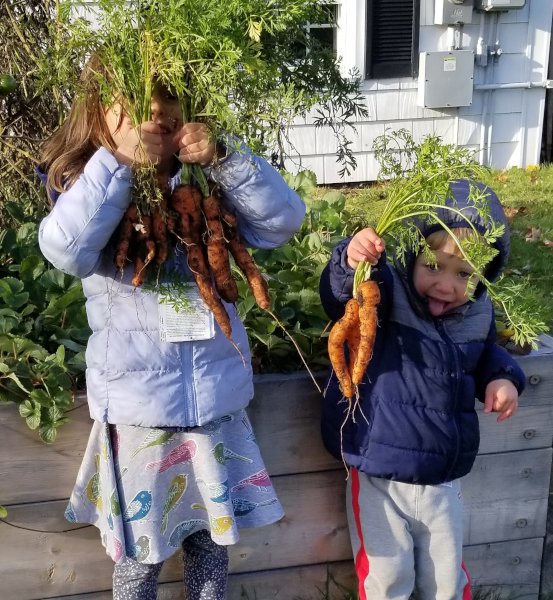
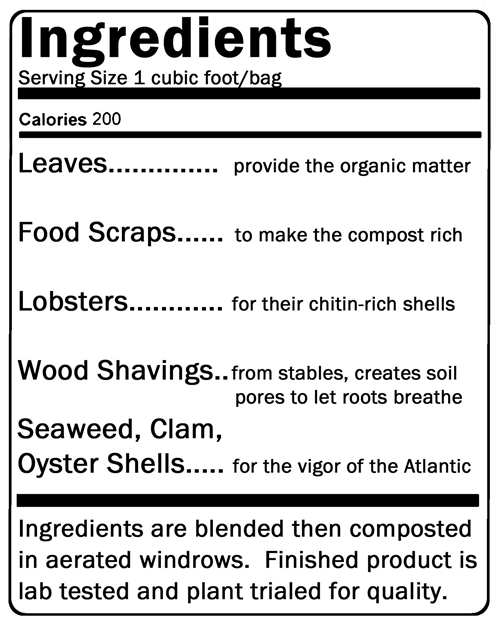
QUALITY COMMITMENT
Our compost is rich in humus, nurtures beneficial micro-organisms, is free of any viable weed seeds, and contains an abundance of immediate and slow release nutrients.
- A Broad Range of Ingredients to support a bio-diverse compost
- Minimal Grass Clippings that can contain herbicides/pesticides. We actively work to exclude grass from our yard debris ingredient
- Free of Weed Seeds
- Lab tested for optimal composition (scroll down for details)*
- Screened to 5/8ths inch
- Made in New England! Our compost sites serve as local sources of nutrients, making our region more resilient.
- Our compost does come from community sources, which means it may contain some plastic and trash. We do our best to keep this to a minimum. This is the tradeoff to getting the rich nutrients contained in food scraps.
QUALITY ASSURANCE
We believe our products are safe to grow food in for our families. We accomplish this level of quality by:
- Ingredients - Controlling what enters our compost system.
- Lab testing - for salts, nutrients, heavy metals, soil food web biology, pathogens and PFAS.
- Plant trials - because plants don't lie. We test for herbicides, germination and vigor.
| Nutrient Lab Test | Plant Vigor / Herbicide Trials |
Food Web Biology | Food Safety Modernization Act |
| 2025 Compost | 2025 Herbicide & Plant Vigor Trial |
2025 Compost | 2025 FSMA Report for Farms |
| 2024 Compost | 2024 Herbicide Trial 2024 Plant Vigor |
2024 Compost | 2024 FSMA Report for Farms |
| 2023 Compost
|
2023 Compost
|
2023 Compost | 2023 FSMA Report for Farms |
| 2022 Compost |
2022 Compost |
2022 Compost | 2022 FSMA Report for Farms |
Heavy Metals: This graph shows metal content found in our compost and soil blend compared to state thresholds. View 2023 Heavy Metal Analysis.
PFAS: Our 2025 Report of Annual PFAS Analysis shows the content of fluorinated compounds found in our compost compared to state thresholds and other contaminated and non-contaminated soils. Note that our compost meets the criteria to be used in the state's strictest use case: compost can be used on a farm that sits over a drinking water supply and grows food where children are present. View our 2024, 2023, 2022 PFAS Lab Analysis. For more information on PFAS in our everyday lives and a podcast discussion with head composter Andrew Brousseau visit Moving the Needle.
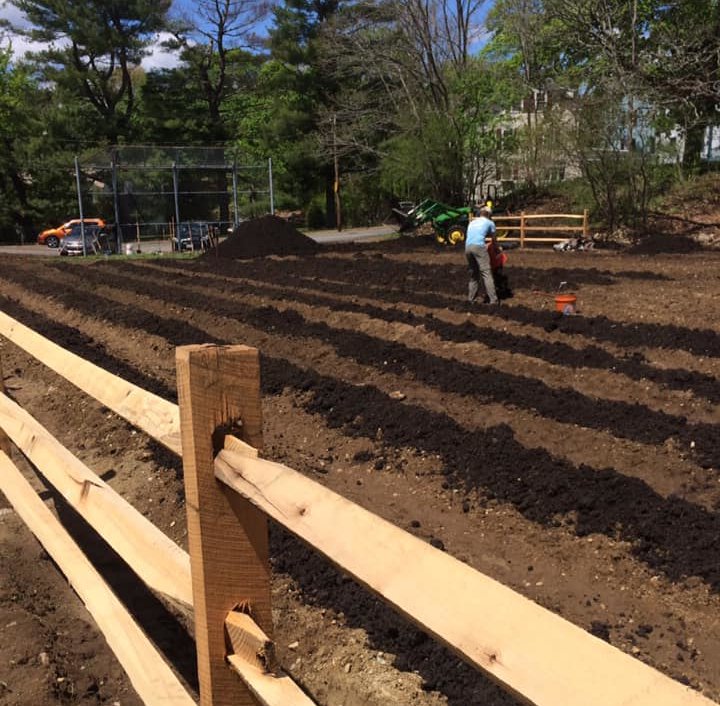
Building Local Resiliency With Food
We proudly support community food initiatives and farms with raised beds, compost and soil to grow more food from food scraps.
With the support of our customers, we offer compost at a reduced rate to local farms. 10 cents of each bag of compost sold goes to our FarmWorks program.
Learn more about our raised bed gardens and find a FarmWorks Farm to buy produce from to complete the loop.
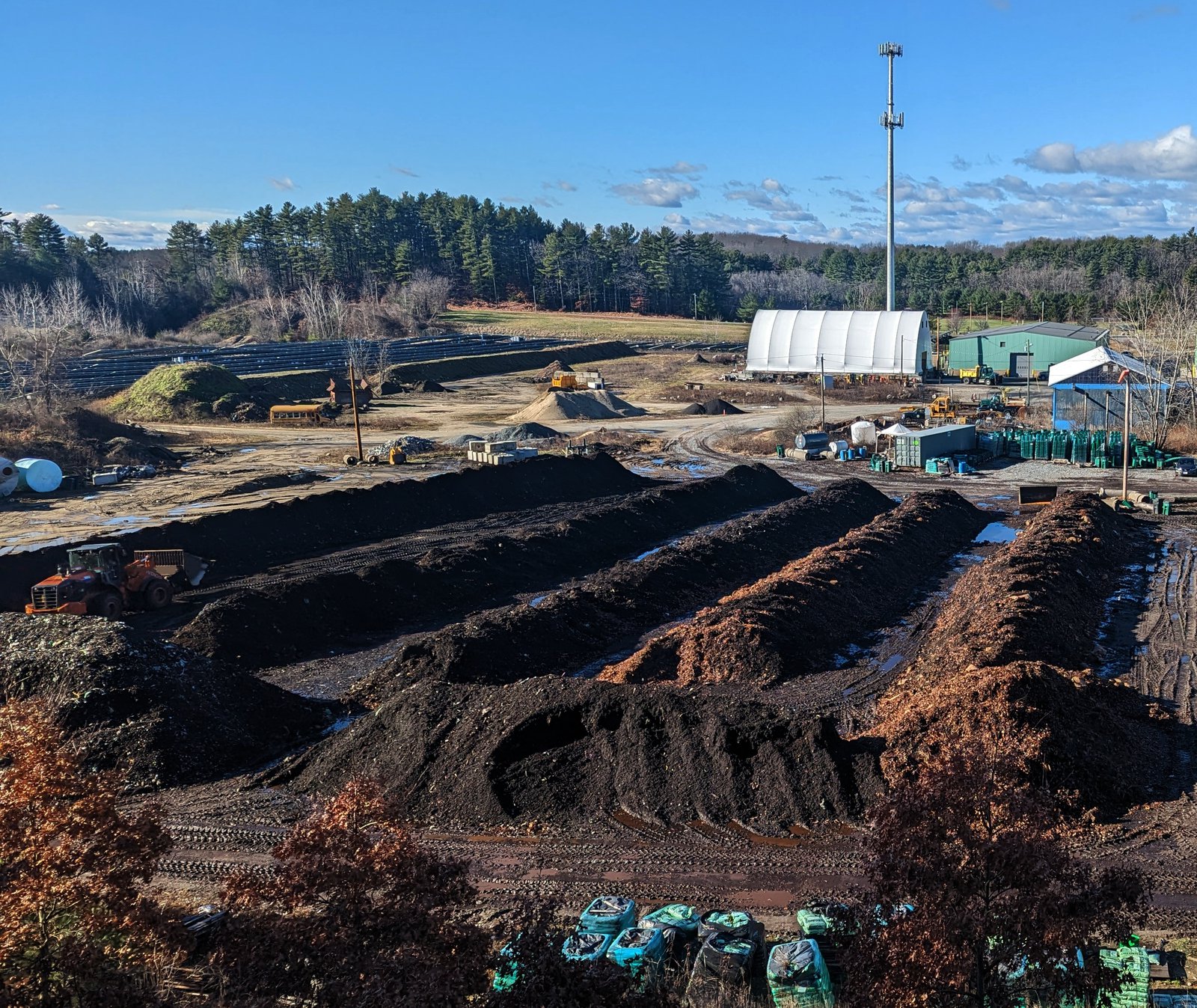
Our Compost Facilities
Our compost is made at four facilities through out New England. These centers serve as local nutrient recyclers, sourcing material sustainably from the community, to be returned to the community. Reducing our need for imported synthetic fertilizers and making our state more resilient.





